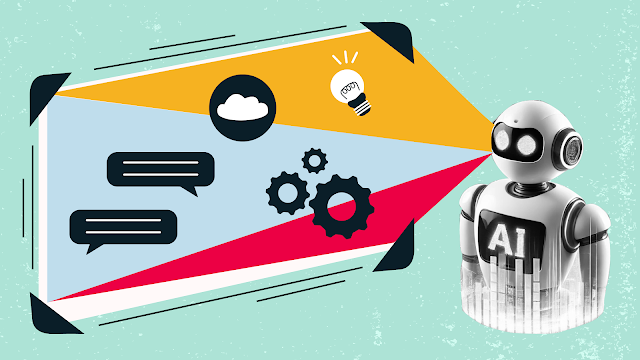How No-Code AI-Driven App Builders Enable Rapid Prototyping
Software development needed technical proficiency and programming skills as well as substantial time investment in the past. Technology advancements now allow a no-code AI-driven builder to redefine the process of turning concepts into operational applications. The tools provide creators with development speed capability which shortens the time to build applications. A low-code AI-driven app builder produces rapid development without sacrificing application customization options. Entrepreneurs together with startups and businesses can now obtain rapid prototyping tools that optimize their development processes. These assets serve as essential digital tools due to their ability to let users perform rapid tests without significant monetary investments.
No-Code AI-Driven Builders Reshape Application Development
A no-code builder operated by AI makes it possible for users to develop applications without any need for programming skills. The development process becomes simpler due to drag-and-drop functions and AI-based automation in addition to automatic templates. Users can effortlessly develop their ideas while validating them through these tools without large investment requirements. AI capabilities of no-code platforms generate automated frameworks that support developers to build structures design layouts and create logical paths instead of manual coding efforts. The rapid prototyping process becomes more simplified thus enabling accelerated development periods. These platforms enable effortless connections between users and external APIs as well as databases and third-party services which further expands their functionality.
How a Low-Code AI-Driven App Builder Supports Efficiency
The application development process through low-code AI-driven toolkits allows users to adjust features without sacrificing user-friendliness. The tool offers users the flexibility to integrate code snippets at will yet remain uncomplicated. Such platforms enable process optimization of workflow automation data processing and user experience development. The development process remains smooth because AI creates recommendations that help users make better decisions. Businesses that want scalability benefit effectively from this approach which allows iterative development without expensive technical requirements. The tools prove particularly beneficial to organizations looking for cost-efficient solutions since they enable projects to finish faster by eliminating the need for extensive development teams.
Why an Online AI-Driven App Builder Enhances Collaboration
An online AI-driven app builder fosters real-time collaboration among teams. Cloud-based accessibility ensures seamless contributions from multiple stakeholders. Team members can modify, test, and refine prototypes without requiring local installations. This shared workspace accelerates feedback cycles, ensuring a faster transition from concept to market-ready product. Enterprises leverage such platforms to bridge gaps between technical and non-technical contributors. The ability to work remotely and update applications instantly further amplifies the benefits of using these tools, making them an ideal solution for distributed teams.
Key Benefits of Using a Mobile App Builder for Prototyping
A mobile app builder ensures optimized solutions for cross-platform applications. AI-driven assistance suggests UI/UX elements, layouts, and interactive features. By streamlining the design and logic phases, mobile applications reach functional prototypes faster. Businesses targeting mobile users benefit from pre-built components, reducing errors and improving deployment efficiency. Speed and adaptability remain crucial in today’s competitive market. Moreover, mobile app builders provide a testing environment where developers and stakeholders can preview applications on different devices before final deployment, ensuring a smooth user experience.
Expanding the Impact of No-Code and Low-Code Solutions
The rise of no-code and low-code platforms has significantly impacted industries beyond technology. Healthcare, finance, education, and retail sectors leverage these tools to develop internal applications, automate processes, and enhance customer engagement. With AI-driven insights, these platforms provide tailored recommendations for app features, improving overall functionality. The democratization of application development fosters innovation across different domains, enabling businesses of all sizes to compete in the digital era.




Comments
Post a Comment